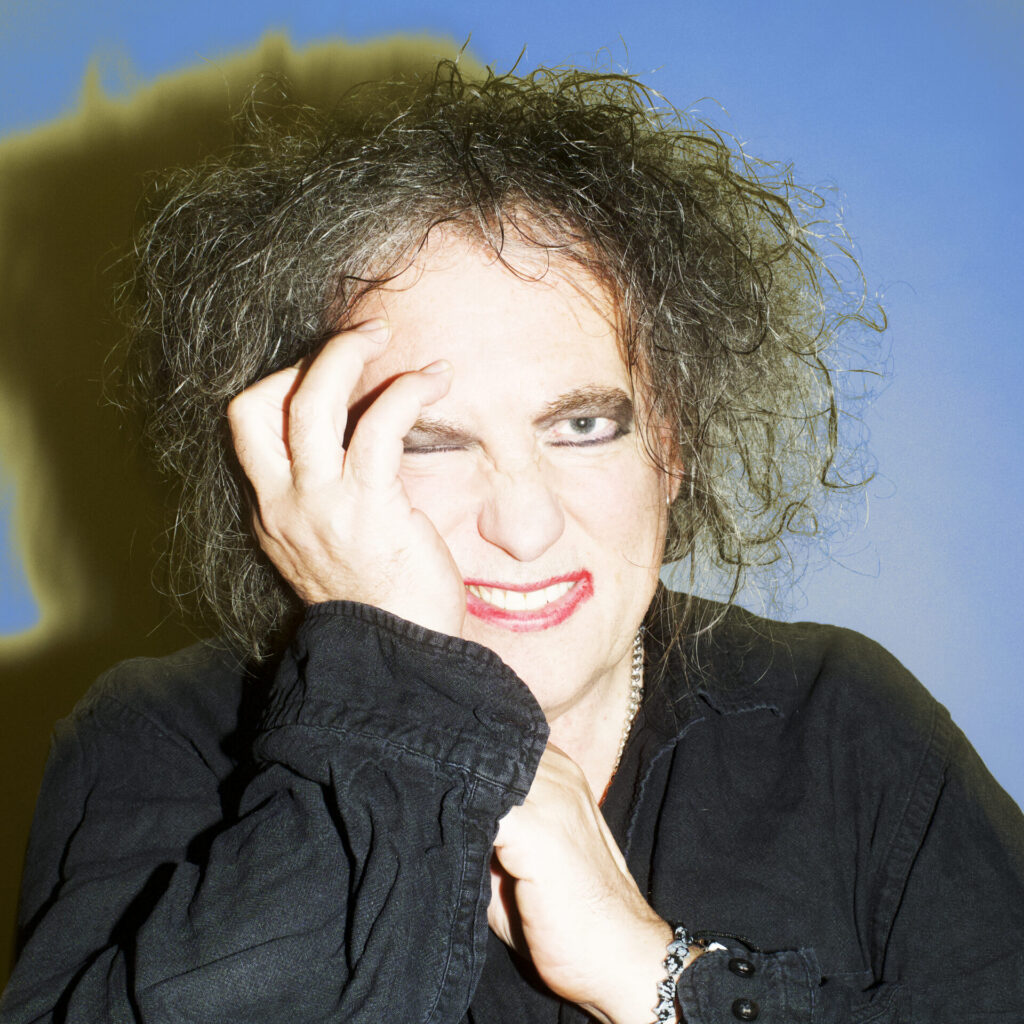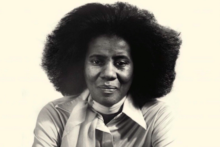A suggestion for you, me, all of us: try the seemingly impossible. Ignore the length of time since the last album. Take away the crushing weight of comparisons as much as you can for everything that’s gone before, even if it can’t ever be truly done. (Let me note this much for now: the last time a Cure album had only eight songs on it, it was Pornography; the last time Robert Smith wrote all the songs on an album front to back, as well as it being an album under an hour long, it was The Head On The Door. Lifetimes have occurred since then.) Consider instead something direct: what, in its own right, is Songs Of A Lost World?
Songs is, to borrow an old Kurt Vonnegut phrase, unstuck in time, yet absolutely crushed by time too. It’s almost uncanny. More than once I found myself overwhelmed with the idea that I just wanted to flash back to an eighteen year old in 1989 I never quite was, given over completely to a dark-clothes-and-makeup look that I never did get around to, flounce over to a couch or bed, toss myself dramatically onto it and listen to the album again while staring out windows at sunsets, at black nights. It’s the fantasy I’ve never quite escaped, maybe, the indulgence of dark meditation captured sonically, that delicious trip-switch of “At last someone understands and I didn’t have the words to put to it until now, to point to it.”
A big reason why is simply down to Smith himself, how he literally sounds. That voice is still that voice, and it sounds like nothing has changed at all, that it’s still that feeling of half-sob, half-caress, a yearning that can trip up your heart. In a world of software fixes and AI recreations, all I can tell you is that having seen the band enough times over the years, including last year, during a show where five of Songs’s eight songs were played among so many old favourites, he still has the gift. That voice sets itself into the arrangements but is never buried. It still wants to clearly connect.
But this isn’t the past. That’s the thing about this album I kept circling around, something that is ultimately about time, distance and endings, underlining that said end is always nearer, sooner than one thinks. Those earlier contemplations across years and decades of finality, of endings, of fires burned cold and more besides were resonant but younger visions of melancholy; this is the work of older men. It’s not an album that feels like a certain sonic stereotype of age, relaxed ‘homespun’ bonhomie and wisdom, but it absolutely is not a pretense at youth either. That beautiful sprightliness that characterised so much of their run of pop baubles in the 1980s and 90s, that had afterechoes even as far along as ‘Freakshow’ on 2008’s 4:13 Dream, that’s not here.
Yet though Songs has a mood, it’s not monochromatic. ‘Alone’ opens with sweeping majesty and space, ‘A Fragile Thing’ has a brisker rising punch, ‘Drone:Nodrone’ is shuddering cyclical intensity, ‘All I Ever Am’ leans the closest to a kind of pop quirk, but only in the most oblique sense. Throughout, both Smith’s and Roger O’Donnell’s keyboards, whether synths or piano or whatever else they choose to employ, have a presence here that seems more distinct than those elements have been in a long time for them, a way to make moments like the steady introduction of a song like ‘And Nothing Is Forever’ seem very not-rock-as-such, yet utterly necessary in context.
Lyrically, while much of the album could be seen through the lens of conventional romantic finality, what absolutely pins down the album is that the collective that is the Cure, always reconfiguring time and again around its unquestioned centre, fully inhabits a space knowing, reaching back to an earlier lyric, how the end always is. ‘Drone:Nodrone’ lets Smith find a way to poke wryly at the focus as well as conveying it, bemused self-dialogue in the face of shrunken time. But otherwise, all is fragmentation, loss, conclusion.
The longest song, perhaps appropriately, is the concluding ‘Endsong’ at ten minutes plus, driven by an echoed drum stomp from Jason Cooper and a final aim for sonic grandeur in ruin. Smith’s almost offhand delivery of “I’m outside in the dark / Wondering / How I got so old” at one point cuts to the quick – something not just for himself but for those he knows have been listening to him all this time. Yet the slow glowering heart of the album is ‘Warsong’, an apt reminder that the Cure has always been very, very good at anger and vicious emotional extremity. “No way for us / To find a way to peace / We never found before” is as good a way to sum up a collapsed space on an intentionally overlooked false foundation as any, whatever situation any listener wants to apply it to. Sonically, his guitars and Reeves Gabrels’ explode around and ride over each other in gnarled roars and scrawls, Simon Gallup once again the person who makes a bass sound like doom.
Yet ‘I Can Never Say Goodbye’ is the one that sits with me most. That Smith has said it is about his own brother’s death and his own reaction to it captured in the moment could, perversely, run the risk of it being too insular. Yet it has the moment that not only feels the most ‘Cure’ somehow – Smith’s couplet of “Something wicked this way comes / To steal away my brother’s life,” his way once again of nodding towards a deep literary heritage and tying it into a present moment – but it suddenly put me in the shoes of my father, who lost his brother, his only sibling, almost a decade back. Sometimes that’s what a song can do.
So what is Songs Of A Lost World? It’s another Cure album, one could say. But I freely admit that always means something to me, and to many others, and knowing it’s also not quite like any other album they’ve done before, that means something again. We all journey towards ends, the past recedes. Yet perhaps, contrary to the opening song, we’re not entirely alone.



